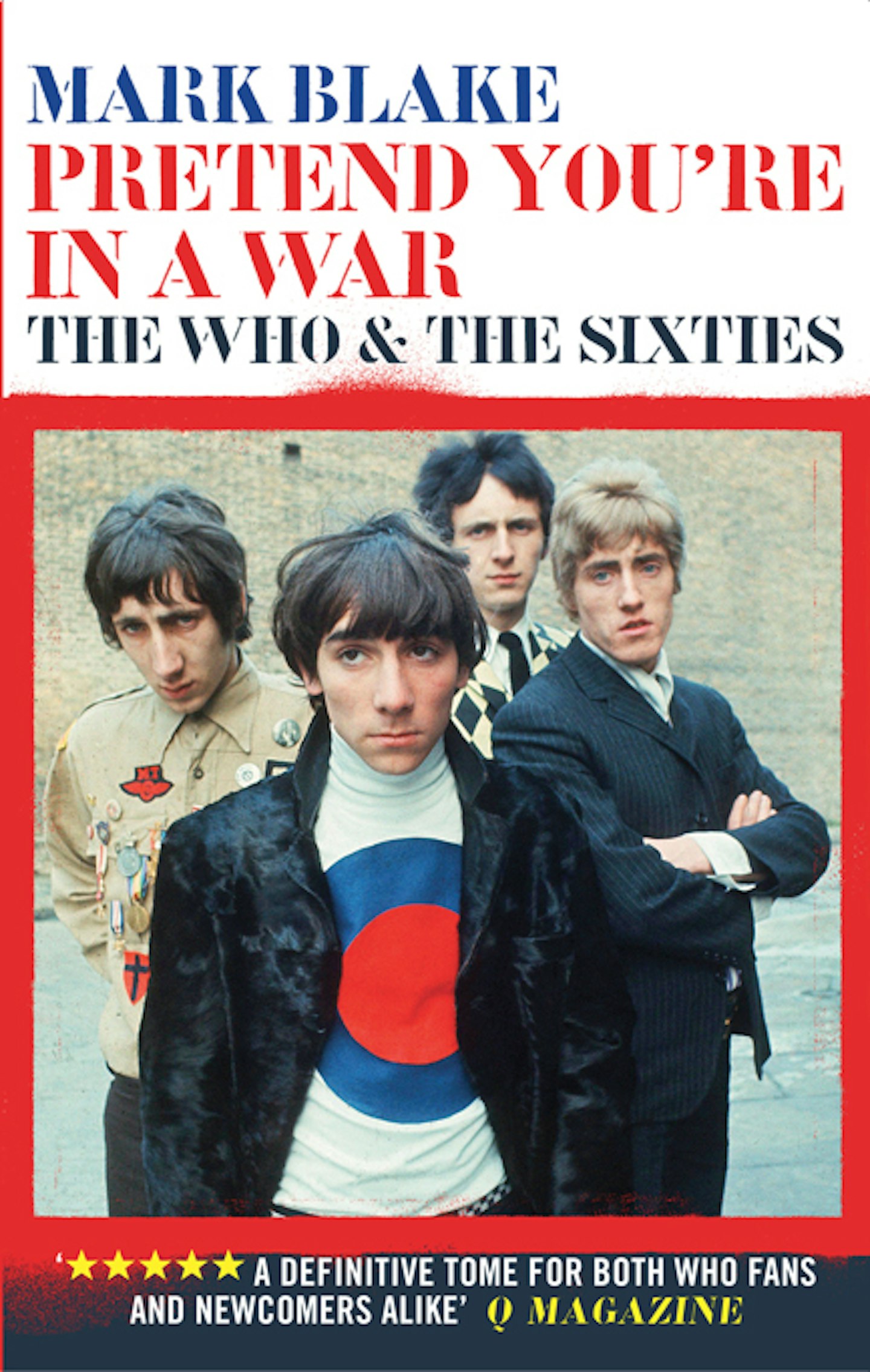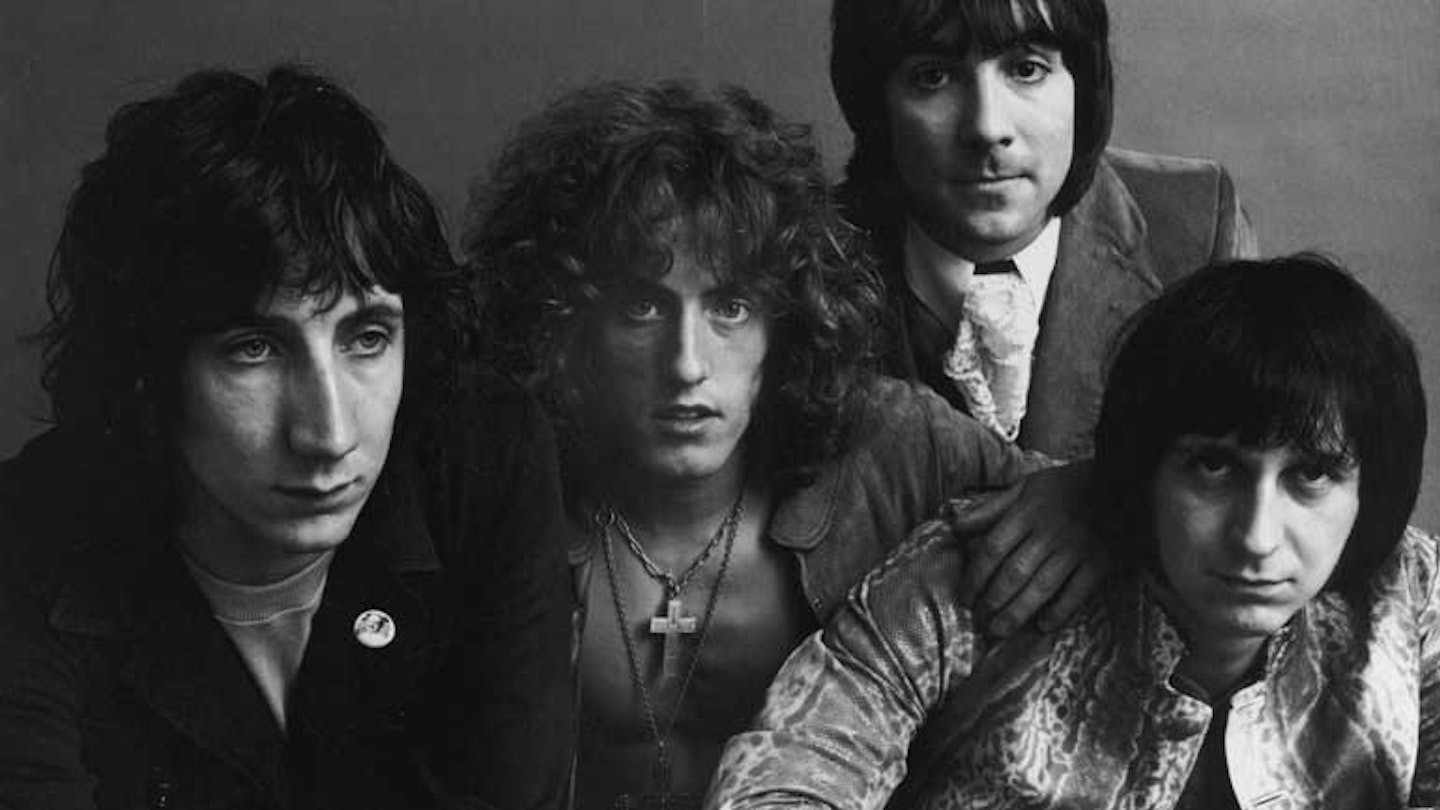CHARTING THE WHO’S jubilant yet turbulent times in the ’60, Pretend You're In A War by MOJO writer Mark Blake is published in paperback this week (September 3). To celebrate the new edition of this exhaustive work on Pete Townshend, Roger Daltrey and co., which includes over 100 interviews with the band and their associates, MOJO has an exclusive extract from the book, as Mark retells the story of The Who’s set at the Monterey festival in 1967, including tales of psychological warfare with Jimi Hendrix, upsetting Ravi Shankar and more... ON JUNE 18 1967, The Who brought what Rolling Stone called their “pulverising music” to the Monterey International Pop Music Festival at the Monterey County fairground, California. Among the festival’s organisers were John Phillips of the harmony group The Mamas And The Papas and The Beatles’ press officer Derek Taylor. The organisers had pledged the festival’s profits to charity, and asked the bands to perform for free. Most accepted, albeit grudgingly, except Indian composer and sitar player Ravi Shankar who pocketed $3,000 for his afternoon performance.
Mark Blake's Pretend You're In A War, out now
As The Who had only just dented the US market, co-manager Chris Stamp agreed to the group playing for nothing. Stamp had recently permed his hair to look more like his hero Jimi Hendrix, discovered LSD and embraced what he called “love and communication… and all that shit.” But he was still compos mentis enough to know this was a good opportunity for The Who.

The other acts on the Monterey bill included Country Joe And The Fish, Jefferson Airplane and Scott McKenzie, whose hit San Francisco (Be Sure To Wear Flowers In Your Hair) was now an anthem for what critics were calling ‘the summer of love’. The stage was wide open for a loud, aggressive group from England.
The Who were due to play on Sunday evening and arrived the day before. Pete Townshend watched Otis Redding work his magic on Saturday night, but America’s take on psychedelia left him cold. “The effect of LSD on American music made it crap, with very few exceptions,” he complained.
If ever The Who had the opportunity to, as Townshend put it, “leave a wound” it was now. But they weren’t the only Track Records act on the bill. “The Who paid my fare home,” says Keith Altham, who covered the festival for New Musical Express, “but Jimi Hendrix paid for my flight out.” To add to the frisson, The Who and fellow Track act Hendrix were both due to play on Sunday evening. By then, as many 80,000 people had passed through the gates into the fairground or congregated outside, hoping to see and hear something, anything. The festival had also attracted unprecedented media coverage, with over 1,000 journalists besieging Derek Taylor's press tent.
“I wasn’t wearing a psychedelic shawl. It was a tablecloth I bought in Shepherd’s Bush.”
Roger Daltrey
Backstage, the Grateful Dead's sound engineer turned chemist, Owsley Stanley, was distributing free LSD trips and Rolling Stone Brian Jones was drifting around dressed like a Regency prince, but looking, as Keith Richards once said, “like a ghost about to leave a séance”. Roger Daltrey recalls Jones joining him, Janis Joplin, The Mamas And The Papas' Mama Cass and Jimi Hendrix for a jam session in the dressing room under the stage.
“Jimi was playing Sgt. Pepper on his guitar,” said Daltrey. “But, and this was the amazing thing, he was playing all the parts. He would go from a bit of orchestration, to a vocal part, to a solo – the whole thing on one guitar.” The others stood and watched, accompanying Hendrix by beating out a rhythm on anything close to hand.
Others remember it differently. Pete Townshend recalled arguing with Hendrix about who would go on first, as neither wanted to follow the other. At one point Hendrix stood on a stool in front of Townshend to show off on the guitar, as if to say, “Don’t fuck with me, you little shit.” In the end, John Phillips suggested they toss a coin. Townshend won.
The Animals' frontman Eric Burdon, his Newcastle accent now softened by California or drugs or both, introduced The Who as “a group that will destroy you completely in more ways than one”. Behind him, the band crashed into Substitute followed by Summertime Blues. It was hard to imagine anything more removed from The Mamas And Papas' passive California Dreaming or anything else played that weekend.
The Who tore through Pictures Of Lily, A Quick One, While He’s Away, Happy Jack, and My Generation. Instead of peace, love and flowers, they offered wanking, pervert train drivers, adolescent turmoil, and Pete Townshend hacking away at the stage with his guitar, like a lumberjack trying to dismember a log with a blunt axe. In the subsequent Monterey Pop movie, you can hear the gasps from the audience as stagehands rush on to salvage the broken equipment. Ravi Shankar watched the performance and was disgusted by “their lack of respect for their music and their instruments.”
“The effect of LSD on American music made it crap.”
Pete Townshend
There was an air of English decadence about The Who at Monterey. In their paisley jackets, Edwardian ruffles and puffed sleeves, the group looked like a gang of marauding dandies. In 2005, Keith Altham recalled that Moon had accessorised his outfit with a necklace made from human teeth. Even Daltrey, who’d rarely worn targets and chevrons in The Who’s pop art days, had joined the revolution. The cape draped around his shoulders was an explosion of red, brown and burnt orange hues, described in New Musical Express as “a heavily embroidered psychedelic shawl”. In fact, it was nothing of the sort. “It was a tablecloth I bought in Shepherd’s Bush market,” Daltrey admitted. “But it did the job.”
Later, Brian Jones introduced Jimi Hendrix as “the most exciting guitarist I’ve ever heard”. Townshend watched Hendrix's set with Mama Cass: “He started doing this stuff with his guitar. She turned around to me, and said to me, ‘He’s stealing your act.’ And I said, ‘No, he’s doing my act’.”
Townshend has since achieved a Zen-like calm on the subject of Jimi Hendrix, but Daltrey still sounds defensive. “I always have to defend The Who when people start raving about Hendrix at Monterey, and what he was doing,” he huffs. “It was totally nicked from The Who.” Daltrey was right – until Hendrix sprayed his guitar with lighter fluid, set it on fire and tossed the charred remains into the audience. Keith Altham remembers running into a subdued Townshend at San Francisco airport the next day, and being warned not to just write about Jimi. “Hendrix triumphed at Monterey,” Altham points out now, “but it was The Who that had drawn first blood.”
Pretend You're In A War: The Who & The Sixties is out now in paperback published by Aurum Press.
Listen to The Who’s 50 Greatest Songs as selected by MOJO.
